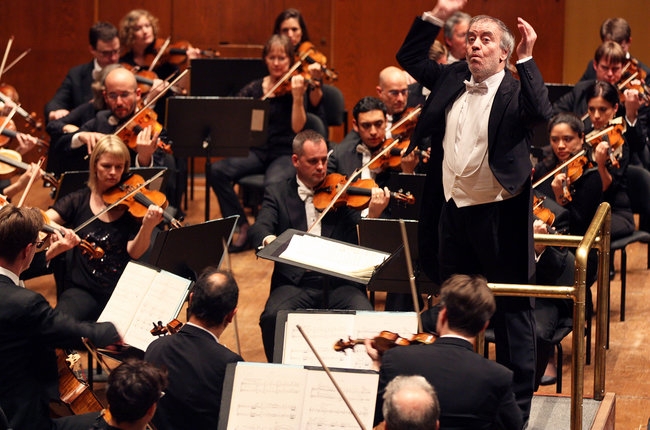"It's important for us to educate and help make classical music more approachable and understandable," says co-founder Simon Eder.
A new music streaming subscription service called Primephonic is launching Wednesday (June 14), committed to specifically serving the needs and interests of classical music listeners.
Speaking with Billboard, Netherlands-based co-founder and executive director Simon Eder and head of business development Veronica Neo explained what has been lacking from the leading platforms and how they have approached streaming differently to the benefit of users, musicians and rights holders.
Primephonic's metadata infrastructure is what makes the major difference, which Eder says was designed using the "entire classical musical history as a kind of skeleton or tree, and we are putting the relevant albums to that tree." This means that rather just basically presenting users with as much music as possible organized by very basic criteria (artist, song title, album and popularity) as the leading streaming services do, Primephonic has focused on the criteria that matters most to classic music listeners, such as composer, sub-genre, era, performer and chronology.
"For example, the Mozart piano concerto," says Eder, explaining the platform's search functionality. "What a classical music listener would see in Primephonic is an overview of all the piano concertos that Mozart composed. What I would see on Spotify is basically a list according to their priorities and according to popularity, which is of course one important way to sort music but for the classical music listener not the only one."
In a world where streaming is king but the kingdom might feel a bit flat for some, Primephonic is providing a very linear method of exploring music. The intent is to delivered music loaded with context, more similar to the recommendations one might get at a local record store than from his or her "Discover Weekly" or another playlist. As such, the platform is placing an emphasis on integrating education in its user experience with its playlist curation and original editorial content that can inform curious listeners without feeling too rudimentary for its more knowledgeable sect.
"Rather than call a playlist 'Classical Music for Sunday,' that's not really ideal for the real classical music listeners who probably want to learn more about the Baroque era," said Eder. "So it's important for us to educate and help a little bit, to also make classical music more approachable and understandable."
Primephonic is launching in the United States and United Kingdom with a $14.99 monthly subscription model offering full access to CD-quality streams, beginning with a free 30-day trial period that does not require any credit card information. All of this, Eder says he hopes, can help "bring back the value" to music.
"Especially if we're talking about classical music, just streaming or having it available that's one thing but if it's well curated and embedded and we are able to show the links and build the bridges, it's a different element," says Eder.
The goal is that value benefits musicians and rights holders as well, financially and otherwise. Rather than approaching label payouts with a per stream payment system, Primephonic is promoting a transparent payment plan in which it shares 60 percent of its net revenue with its various label partners and divides that pool based on total seconds of streaming. This system is more favorable to classical rights holders with recordings that typically last many times longer than a standard pop song and here do not need to compete with mainstream music for revenue share. (Copyright fees will be paid out of the 40 percent Primephonic keeps.)
As Primephonic develops, the company also plans to continue boosting its original content to develop an ecosystem to support classical musicians and boost their profiles. In this, they intend to help create a community for classical music fans who share their interests through public profiles and connect with likeminded listeners.
"We're also trying to offer a digital branded space for the artists, for the orchestras, for the conductors to give them a little more depth," says Eder. "Because nowadays what's so important for classical musicians is they're not making the big money with recordings, it's important for them to be visible in the digital sphere because they're touring internationally, because they want to be seen, because they want to be heard and they want to be engaging."
Notably, Primephonic inked deals last week with Warner Classical and Sony Classical for rights to their catalogs spanning back to the 1950s, adding significantly to its repertoire that now boasts more than 100,000 songs. Since the company ingests all metadata into its system manually at about a pace of 200 albums per day, Eder says he expects it to take 3-6 months before those major label catalogs are fully integrated into their service.
By working in this very specific sphere of music, Primephonic also hopes to explore different subscription models in the near future by catering to more varied audiences in a way the leading services may not be able to do. Say, for instance, someone just wants to supplement her Spotify account with Primephonic but only on weekends when she had more time to listen -- Neo says such a part-time subscription could be possible.
"I think especially for a niche provider, which will become far more relevant in the future, it needs a more flexible approach for the pricing to also be more attractive," adds Eder.





